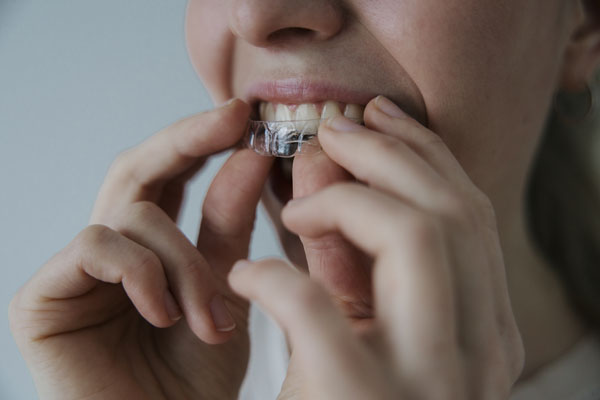Diabetes and Your General Dentist

A general dentist offers preventative care for patients in perfect health, as well as those who have underlying health issues like diabetes. Many people live full and healthy lives, even with diabetes. All it takes is a few proactive measures that ensure the health of the body and the mouth. Your general dentist can guide you through the implications of diabetes on your oral health and how to deal with them.
A general dentist discusses the link between diabetes and oral health
There is a multifaceted connection between diabetes and oral health. For starters, a high-carb, sugar-rich diet can cause oral health issues in the short to medium term. In the long term, the same diet can cause diabetes. A person with an unhealthy diet is at risk of developing both diabetes and dental problems like tooth decay and gum disease.
Second, a diabetic is at higher risk of developing oral health problems like gum disease and oral thrush. Uncontrolled blood sugar often results in high sugar levels in saliva, which creates an environment that allows harmful bacteria to thrive. Left unchecked, the bacteria proceed to cause damage to the teeth and gums. High sugar content in saliva also can also encourage the growth of the fungi that cause oral thrush.
Third, diabetes medication can have side effects like dry mouth, which encourages the growth of bacteria. A general dentist can help their diabetic patient to prevent or manage each of these scenarios. Here is how.
How a diabetic can maintain good oral health
A diabetic can keep their body and their mouth healthy by controlling their blood sugar through a healthy diet. This simple measure carries a host of health benefits. When a person’s blood glucose levels are within the normal range, the glucose levels in their saliva remain low. This keeps harmful bacteria or fungi from thriving and attacking the mouth. Other simple measures that can help to keep the mouth healthy are:
1. Practicing excellent oral hygiene
For gum disease and tooth decay to happen, two factors come into play. They are the presence of bacteria and a supply of food for the bacteria. Brushing at least twice a day and flossing at least once eliminates both factors.
2. Staying hydrated
If the patient’s diabetes medication causes dry mouth, they can ask their GP to prescribe an alternative. In the rare scenario that the person has to stick with said medication, they can make a conscious effort to keep their mouth hydrated. Sipping water at regular intervals will keep the mouth hydrated and flush away any bacterial buildup. This is also a great way to maintain fresh breath and hydrate the body at the same time.
3. Quitting tobacco and keeping alcohol intake to a minimum
Cigarettes and alcohol contribute to oral health problems. By controlling the things that go into their mouth, a diabetic patient can reduce the risk of gum disease. A healthy diet that is low in sugar, refined carbohydrates, acid and alcohol will keep tooth decay and gum disease from happening. If the person quits smoking, their lungs and mouth will develop a higher capacity to heal and fight infection.
Regular dental visits also go a long way in maintaining oral health
Our general dentist caters to patients with health conditions like diabetes and cardiovascular disease. You too need quality dental care, so reach out to us to schedule a consultation with the dentist. They will offer you customized care that will cater to your unique set of circumstances.
Request an appointment here: https://dentalstudiocolleyville.com or call Dental Studio Colleyville at (817) 885-5188 for an appointment in our Colleyville office.
Check out what others are saying about our services on Yelp: Read our Yelp reviews.
Recent Posts
During a visit to the general dentistry office, the dental professional will typically emphasize the importance of flossing. If you tend to forget to floss every day or have trouble with the process, you are not alone. The time and effort required to thread the floss between each tooth and remove plaque and food particles…
General dentistry involves preventative, restorative, and cosmetic dental treatments like teeth whitening. Teeth are constantly bombarded by substances that cause stains and discoloration, affecting the way that they look.The most common type of teeth whitening treatment performed by dentists involves using bleaching agents like hydrogen peroxide to remove stains from the outer surfaces and deep…
Regular visits to the general dentistry office are essential for both adults and children alike. As a parent, you may have a lot of questions regarding dental appointments for your child. Knowing when to take your child to their first general dentistry appointment and what to expect from that appointment can help you prepare adequately.If…
General dentistry helps address issues like a tooth infection. A teeth infection typically occurs when a tooth’s pulp chamber has been opened up by decay or infection. This enables bacteria and the acids that they make to reach these soft tissues, leading to excruciating toothaches and significantly increasing the risk of infection.General dentistry classifies teeth…


